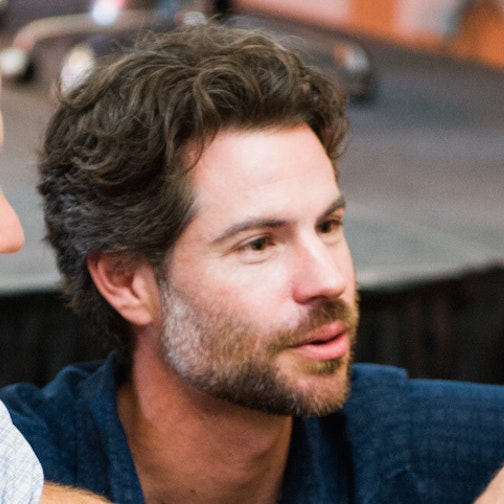Ruth DeFries Bestowed 2015 Breakthrough Paradigm Award
Mapping a Blueprint for the Good Anthropocene
-
-
Share
-
Share via Twitter -
Share via Facebook -
Share via Email
-
Between 1845 and 1849 one million people starved to death in Ireland and another million fled the island. The immediate cause was a virulent fungus that destroyed potatoes. But the underlying reason, held good opinion in Britain, was that there were just too many Irish people. “The cheapness of this nourishing root [potatoes],” wrote Reverend Thomas Robert Malthus two decades earlier, “joined to the ignorance and barbarism of the people, have encouraged marriage to such a degree that the population has pushed much beyond the industry and present resources of the country.”
But, as journalist Fred Pearce notes, throughout the entire famine, Ireland was exporting food, especially beef, to England. “Poor Irish families were forced to sell their pigs to pay the rent even as their children starved.” The British weren’t intentionally starving the Irish, Pearce notes. Rather, Ireland’s British rulers convinced themselves that the market would correct itself, and interfering with it would cause more harm than good. Britain’s Prime Minister spoke of his “Malthusian fear about the long-term effects of relief.” The Economist magazine warned that increasing the wages of Irish workers “would stimulate every man to marry and populate as fast as he could, like rabbits in a warren.”
In her new book, The Big Ratchet: How Humanity Thrives in the Face of Natural Crisis, Columbia University professor Ruth DeFries, argues there was nothing inevitable about the Irish famine. “The genetic clones and the fungus are to blame if one views the famine through a purely ecological lens,” she writes. But agriculture makes humans far more than ecological beings.
For nearly four decades DeFries has shown has humankind’s remarkable ingenuity both solves old problems and creates new ones. There are, to be sure, Malthusian crises, Ruth emphasizes. But that’s just the first half of the story. The second half was told by the economist Esther Boserup in the last half of the 20th century. Boserup found that people around the world intensify food production when faced with scarcity.
“Solutions will create new problems and problems will generate new solutions,” writes DeFries. This is not a reason for complacency, she emphasizes. It is reason for action. To honor the achievements of this pioneering ecomodernist researcher and scholar, Breakthrough is honored tonight to award Dr. Ruth DeFries the Breakthrough Paradigm Award.
DeFries embodies her philosophy. Like many conservationists, she is saddened by the loss of biodiverse primary habitats to farmlands. She helped pioneer the use of satellites to track changes in forest cover. But rather than looking away she looked closer. She started finding cases where growing more food on less land spared forests from destruction— a process known as decoupling.
Much of her work has been in India. DeFries was one of the first to observe that as people move from the country to the city they tend to stop cooking with wood and instead cook with liquefied petroleum gas — a switch that she and other researchers have found can allow forests to grow back.
Agricultural intensification and fuel switching isn’t guaranteed to work always and everywhere. DeFries is a careful researcher, committed to the facts, and she points out that while agricultural intensification and fuel switching can save forests, they can also sometimes degrade them.
Technology neither creates nor solves all of our problems. It was dogmatism and cruelty that left a million Irish dead — and there’s no technofix for those things. All of us, including Ted and I, have a tendency to see patterns we want to see, and to over-generalize — especially, I’ll admit, on Twitter.
Recognizing this tendency not just in others but especially in ourselves motivated us to start Breakthrough Dialogue. One of the most rewarding experiences of my life was to work with Ruth and 16 other coauthors on An Ecomodernist Manifesto. Over a 10-month period, Ruth and the others brought their analytical rigor and discernment — as well as their optimism — to creating a blueprint for a good Anthropocene.
Please join me in a warm welcome and congratulations to Ruth DeFries, the winner of this year’s Breakthrough Paradigm Award.
The above essay was originally presented by Michael Shellenberger at the opening night dinner at the 2015 Breakthrough Dialogue. Ruth was interviewed on stage by the Meera Subramanian, who has written for Nature and the New York Times, and whose book, A River Runs Again: India’s Natural World in Crisis, from the Barren Cliffs of Rajasthan to the Farmlands of Karnataka, will be published in August 2015 by Harper Collins.
Photo Credit: MacArthur Foundation
